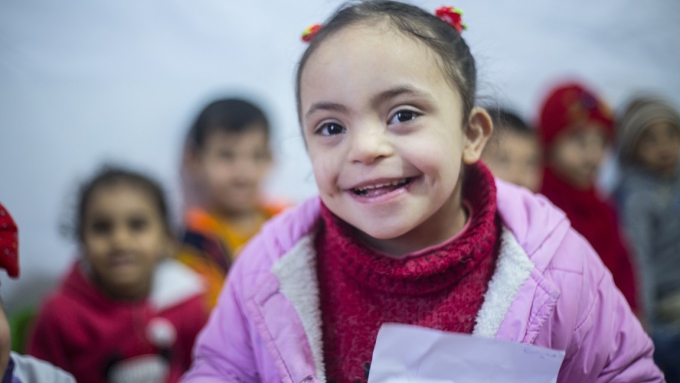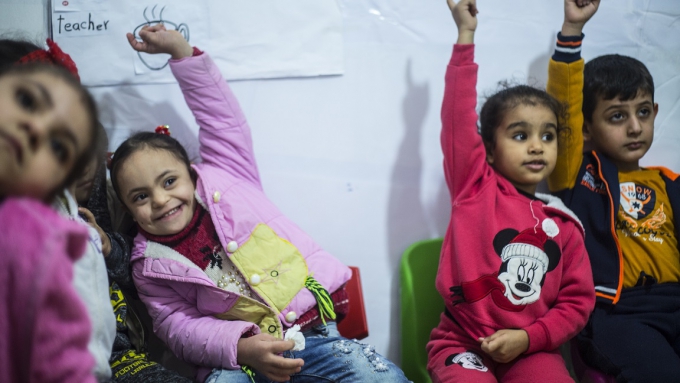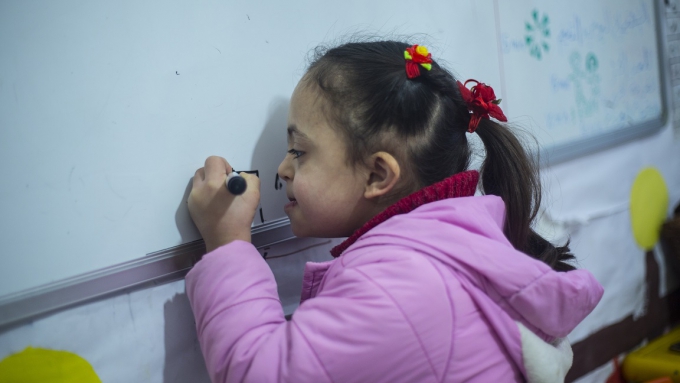No limits to fear

Sending their young daughter to read her first letter was a prospect that brought Heya’s parents more apprehension than excitement.
Born with Down’s syndrome, Heya’s intellectual development was affected by her conditions. Though unsure at first how education would help her progress, Heya’s parents decided to register their daughter at Save the Children’s Early Childhood Care and Development (ECCD) centre in Beirut.
“[Before joining the centre] Heya was a bit aggressive,’’ says the four-years-old’s mother Majida. “She used to talk very little and found it difficult to get her message across, but now she understands everything and communicates what she wants. She is a smart girl.”
Majida’s initial worries weren’t totally unfounded. The latest figures suggest that 97 percent of girls between 3-5 years who were born with different types of mental and physical disorders never make it to a nursery.

Although children of Heya’s conditions are perceived to be less capable of coping with constant change in their surroundings, Majida noticed that Heya’s progress in her first year at the centre was steady.
According to Heya’s teacher, the four-year-old showed the same level of improvement that children of her age make. Asia explains how, with extra dedication and special training she received to deal with a range of special needs for children, she was able to prepare Heya for the next grade.
“Children welcomed her into the group and instantly made friends with her,” Asia says. “She began to learn the letters and numbers. In the classroom, she became very active and always took part in the exercises. That was our aim; to make her feel that she is like any other child singing a song or drawing a tree.”

The ECCD centre, supported by Asfari Foundation, welcomes children between 3-5 years. The Non-Formal Education programme lays a critical foundation of literacy and numeracy skills that help them succeed at school. Save the Children’s education campaign in Lebanon- Their Education, Our Future- calls for those programmes to be regulated across the country. The campaign also calls for children like Heya to be given an equal opportunity to fulfil their potential, because, as Heya herself proved, children will only relish this opportunity.
“I want the society to accept her,’’ says Majida. “I want her to join a school like any other child, although I am worried she will have to join a boarding school for children with Down’s syndrome. She has made friends and I wish she can lead a normal life like all children.”
 Lebanon
Lebanon